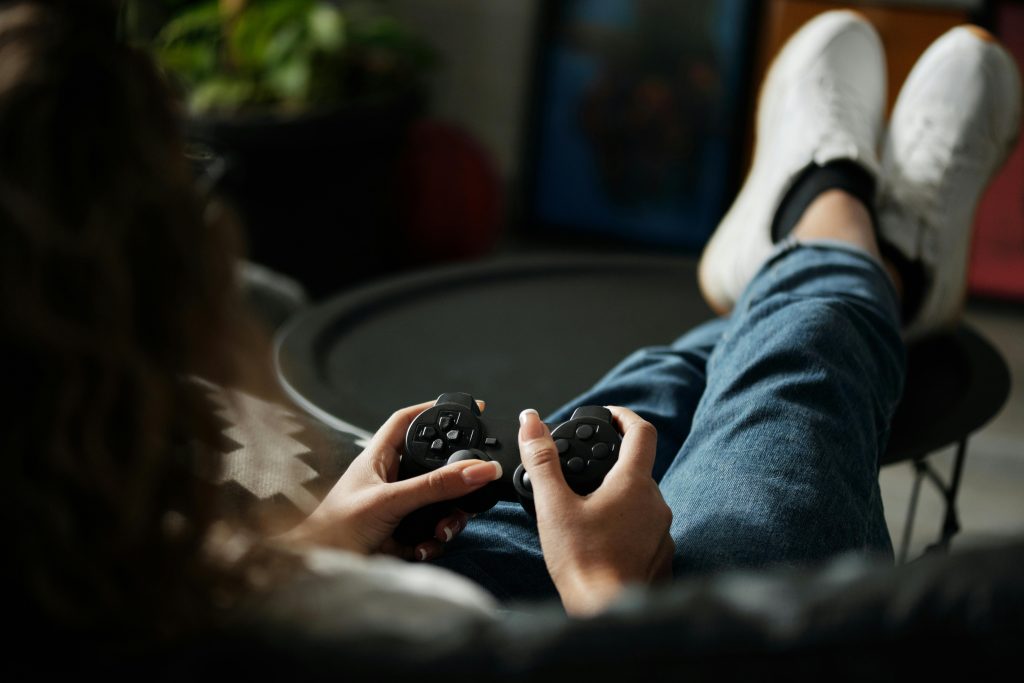That empty feeling after a 6-hour gaming session isn’t random. It’s your brain telling you that you just traded irreplaceable hours of your actual life for virtual achievements that don’t matter.
I’m going to say what everyone else won’t: if you’re spending 30+ hours a week gaming while your real life falls apart, you have a problem. And deep down, you know it.
Here’s the uncomfortable truth about what excessive gaming is actually costing you—and what you can do about it.
The Lies You Tell Yourself
“It’s just my hobby.” Hobbies improve your life or create something valuable. Gaming addiction does neither. It’s escapism disguised as recreation.
“I’m socializing online.” Gaming buddies aren’t real friends. They don’t know your actual problems, support your real goals, or stick around when you stop playing. They’re addiction enablers, not a social circle.
“It helps me relax.” Gaming doesn’t solve stress—it helps you avoid dealing with what’s causing the stress. Those problems are still waiting when you log off, plus you’ve added the stress of wasted time.
“I can quit anytime.” If that were true, you already would have. The fact that you haven’t stopped despite knowing it’s holding you back proves you’re hooked.
“I’m really good at it.” Being good at games is like being good at eating cereal—it’s not a skill anyone cares about. Your gaming achievements impress literally no one who matters in the real world.
What You’re Actually Trading Away
While you’re leveling up fictional characters, here’s what’s happening to your actual life:
Your career is stagnating. Your coworkers are learning new skills, building networks, and advancing. You’re perfecting your kill-death ratio. Guess who’s getting promoted.
Your body is deteriorating. Poor posture, weight gain, eye strain, sleep disruption. You’re literally aging faster while sitting still for hours.
Your social skills are atrophying. Online interaction isn’t real social development. You’re losing the ability to read body language, have face-to-face conversations, and connect with people in meaningful ways.
Romantic opportunities are passing you by. Nobody wants to date someone whose main achievement is beating video games. While you’re grinding levels, potential partners are living actual lives.
Your finances are suffering. Money spent on games and equipment could be invested. Time spent gaming could be spent earning. You’re choosing virtual wealth over actual wealth.
The Brutal Math
Let’s do some quick calculations. If you game 4 hours per day:
That’s 1,460 hours per year. That’s 36 full work weeks annually. In 10 years, that’s 14,600 hours—enough time to become world-class at any real skill.
At $500 per year on gaming (conservative estimate), that’s $5,000 over 10 years. Invested properly, that could be $15,000+. This doesn’t include the opportunity cost of skills not learned or income not earned.
Time is your most valuable resource, and it’s non-renewable. Every hour you spend on virtual achievements is an hour you can’t spend building actual achievements.
Why Games Hook You
Games are designed by psychologists to be addictive. They provide immediate rewards, clear progression, and constant stimulation. Real life requires patience, tolerance for uncertainty, and delayed gratification.
Gaming gives you the feeling of achievement without actual achievement. Your brain gets the dopamine hit of “success” without the work that real success requires.
This makes real life feel boring and difficult by comparison. You’ve trained your brain to need constant stimulation and immediate rewards, making normal activities feel unsatisfying.
How to Break Free
If you’re ready to reclaim your life, here’s the plan:
Go cold turkey for 30 days. Uninstall games, cancel subscriptions, put your console in storage. You need to break the habit completely before you can moderate it.
Replace gaming time with real goals. Learn a marketable skill, start exercising, read books, build relationships. The key is having something better to do than game.
Fix what you’re avoiding. If you’re using gaming to escape anxiety, depression, or life dissatisfaction, address these root causes. Get therapy if needed.
Build real achievements. Set fitness goals, career objectives, learning milestones. Create a progression system in your actual life that’s more rewarding than virtual ones.
Find real social connections. Join clubs, take classes, go to events. Build friendships based on shared real-world activities and interests.
The Reality Check
Look at successful people your age. How many of them spend 30+ hours per week gaming? How many built their success while prioritizing virtual achievements over real ones?
The answer is zero. Successful people might game occasionally for fun, but they build their real life first. They treat gaming as dessert, not the main course.
You’re not a kid anymore with unlimited time to waste. Every year that passes makes it harder to catch up to where you should be in life.
The Choice
You can keep choosing virtual progress over real progress, or you can decide to build something meaningful with your actual life.
Gaming will always be there. But opportunities in the real world won’t wait forever. The job promotions, relationship possibilities, and personal growth you’re missing while gaming are going to other people who chose reality over fantasy.
The Bottom Line
Your life is happening right now, not in virtual worlds. Every hour you spend gaming is an hour stolen from building the life you actually want.
You know this already. The question is whether you’re going to do something about it or keep making excuses while your actual life slips away.
What’s Your Move?
How many hours per week are you gaming? What could you accomplish if you spent that time on real goals instead? What’s stopping you from making the change?
Share this with someone who needs to hear it. Sometimes we all need a wake-up call.
Remember: The best time to start building your real life was years ago. The second-best time is right now.
